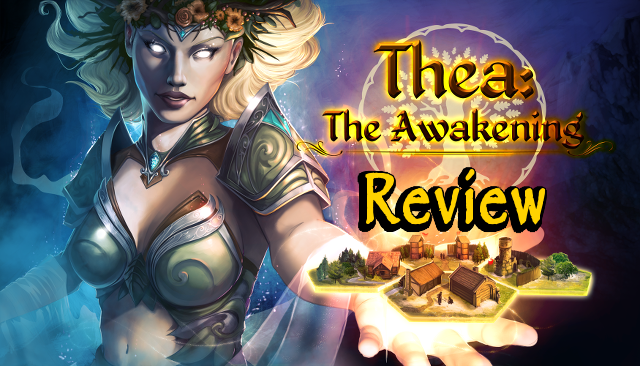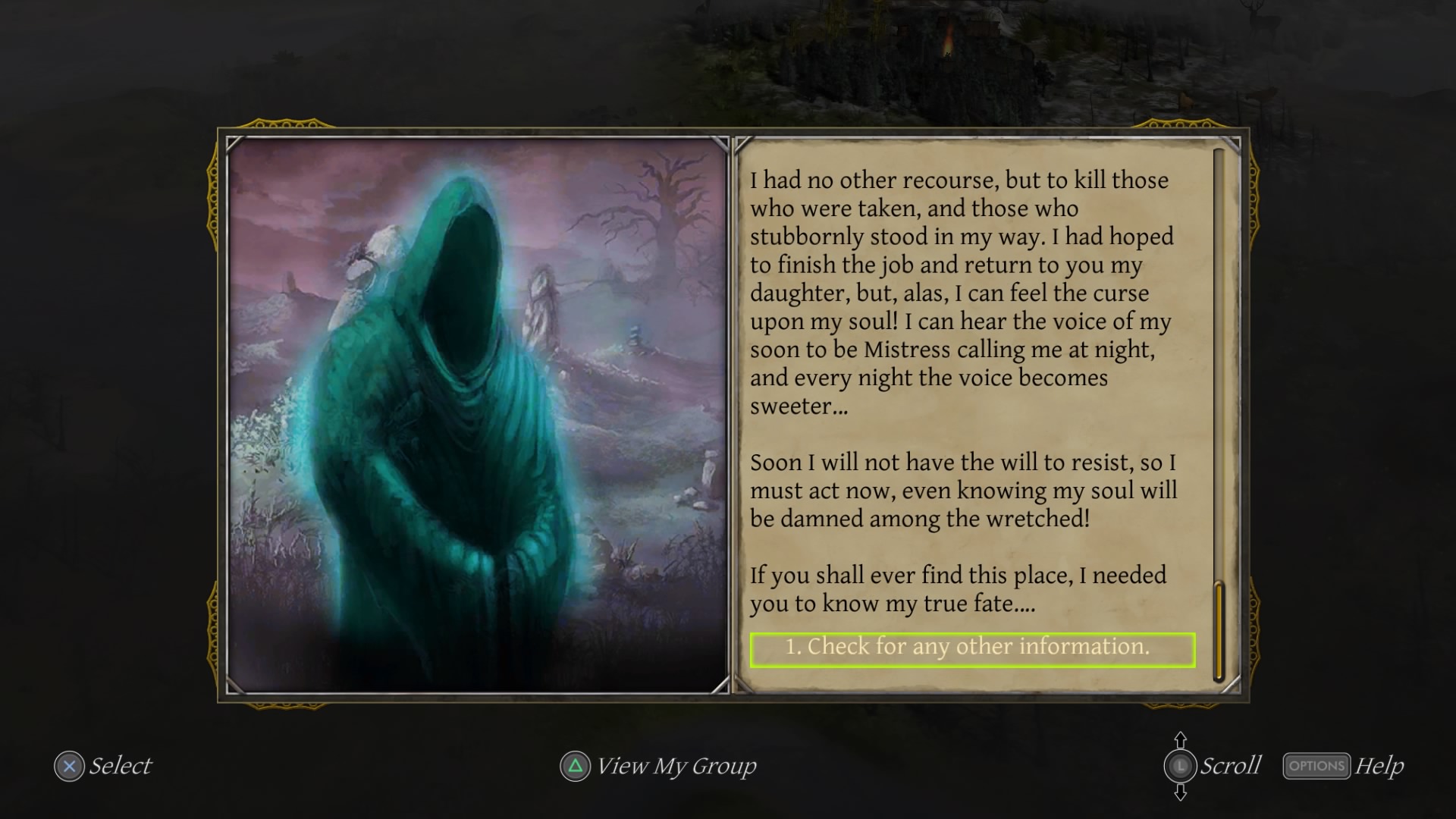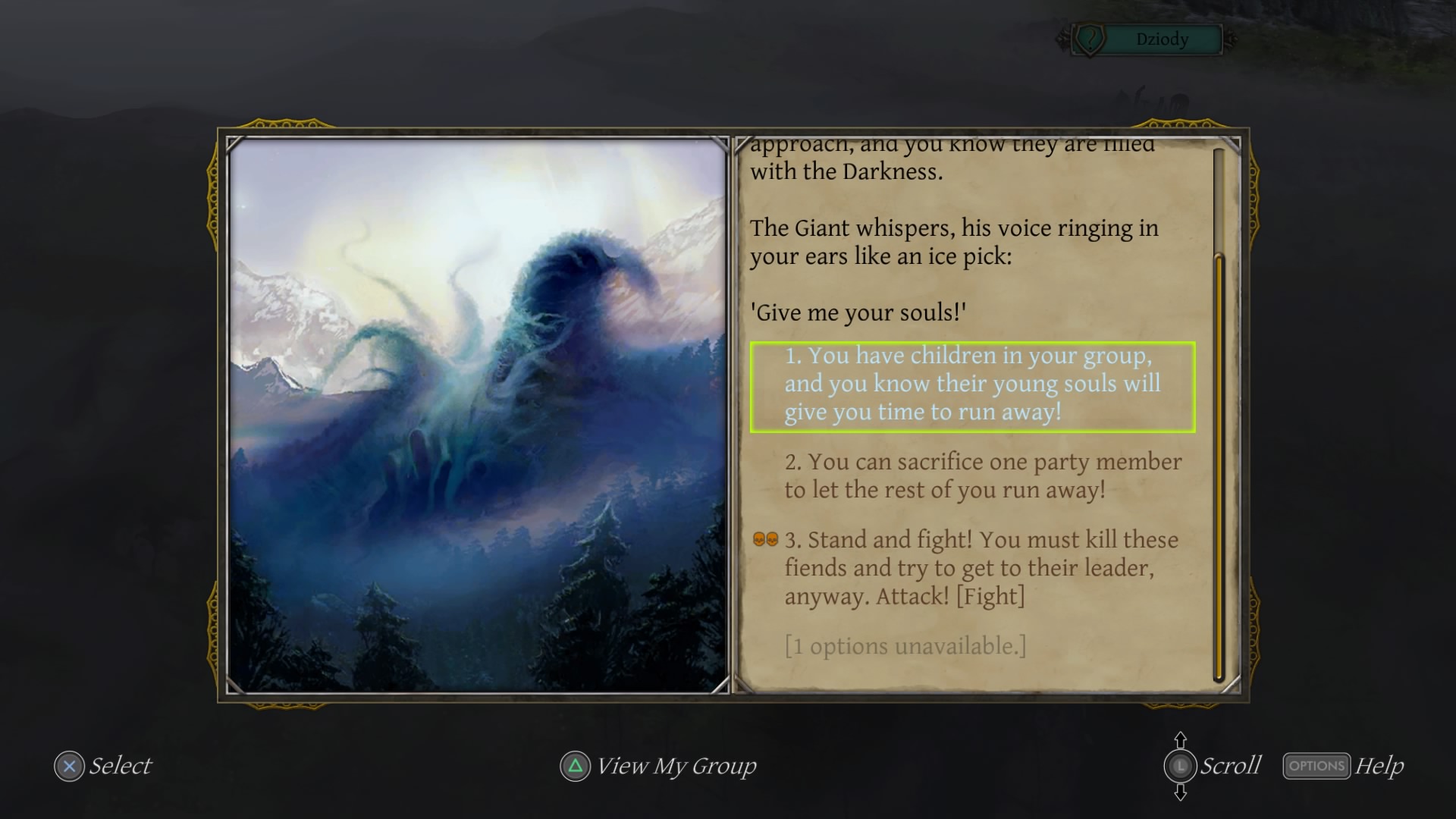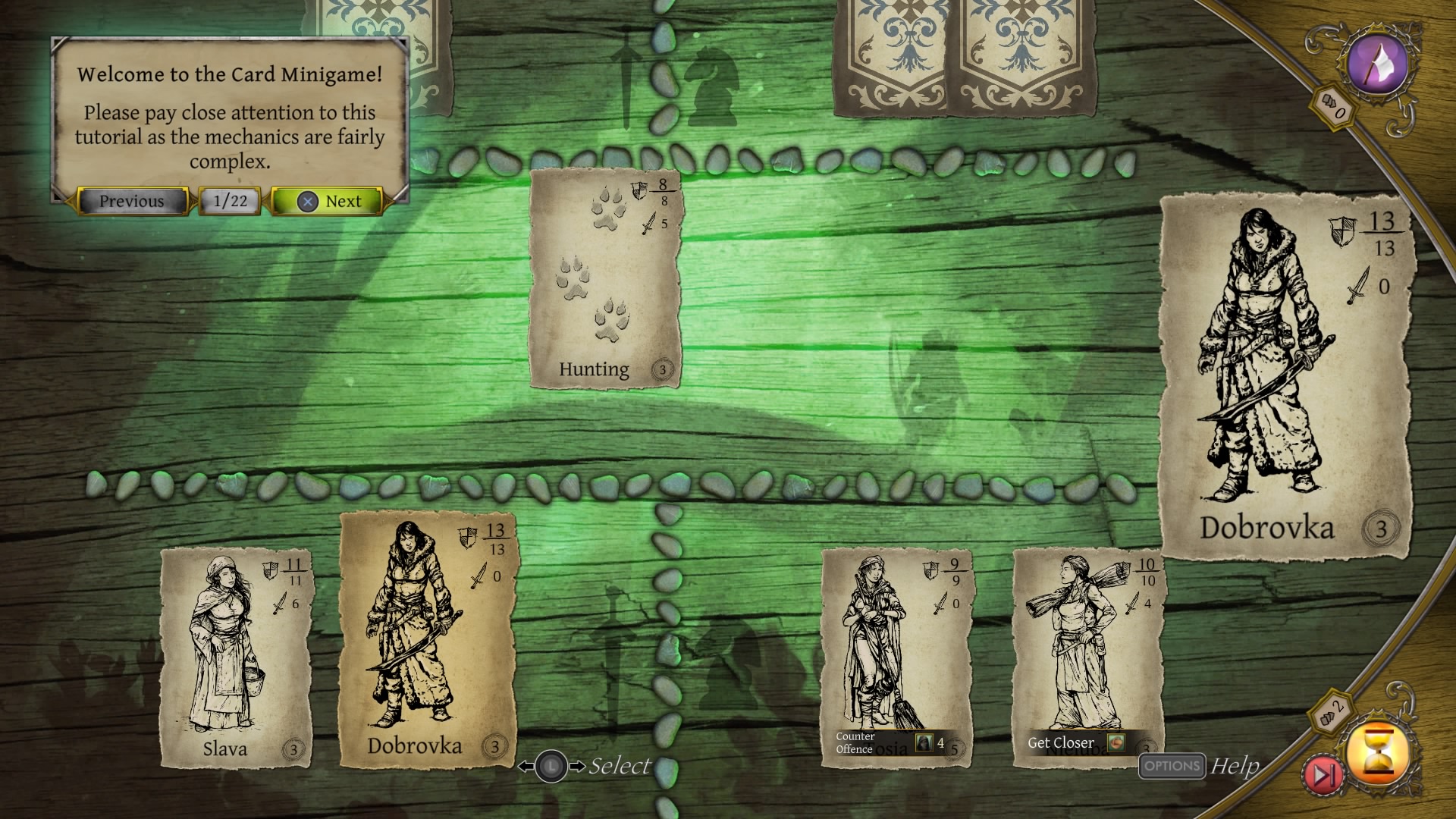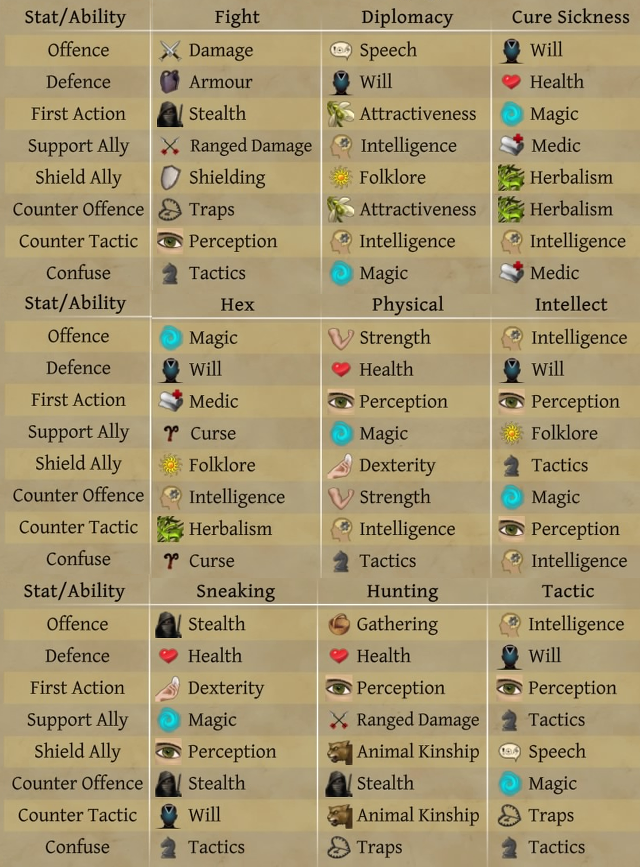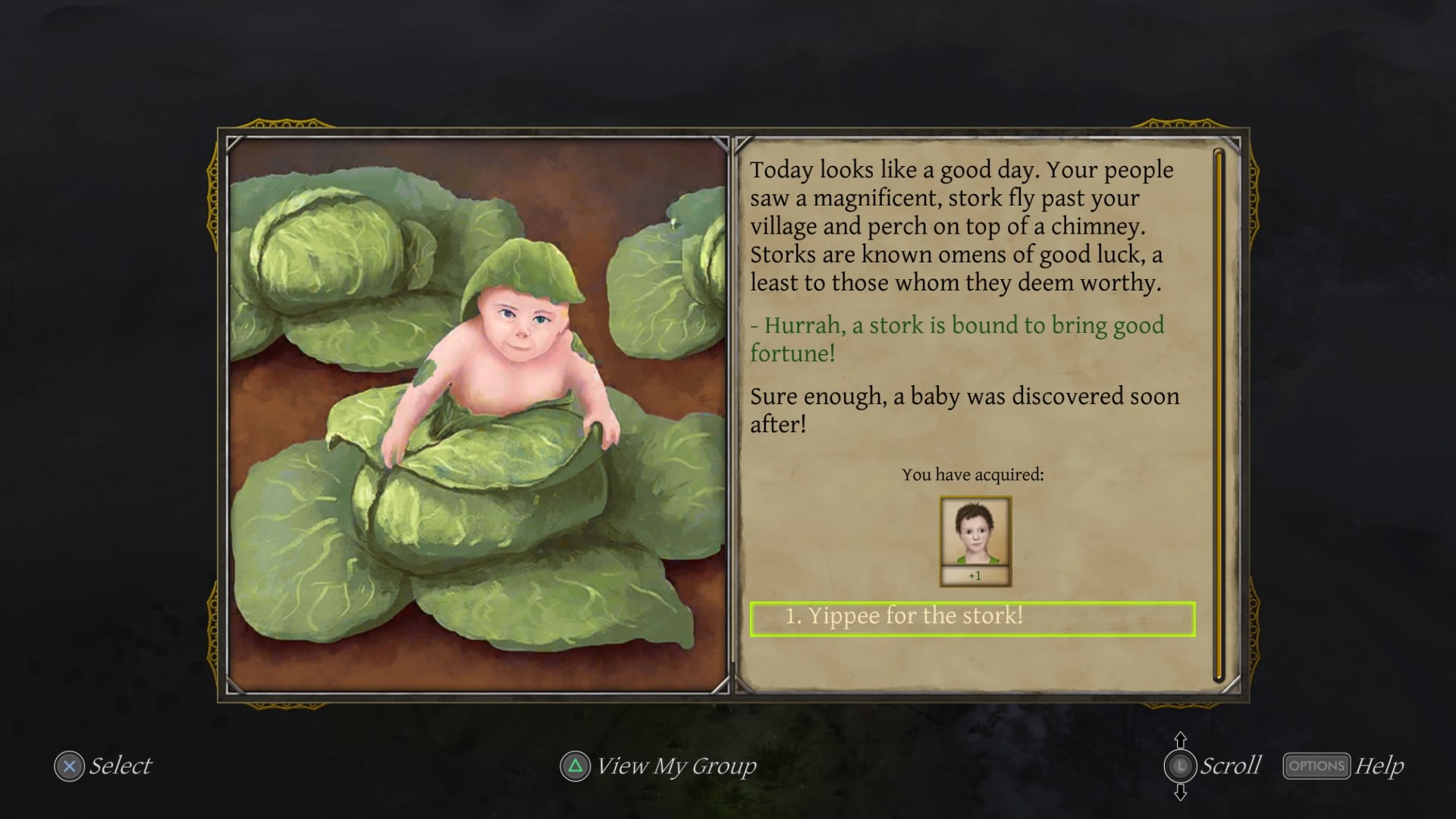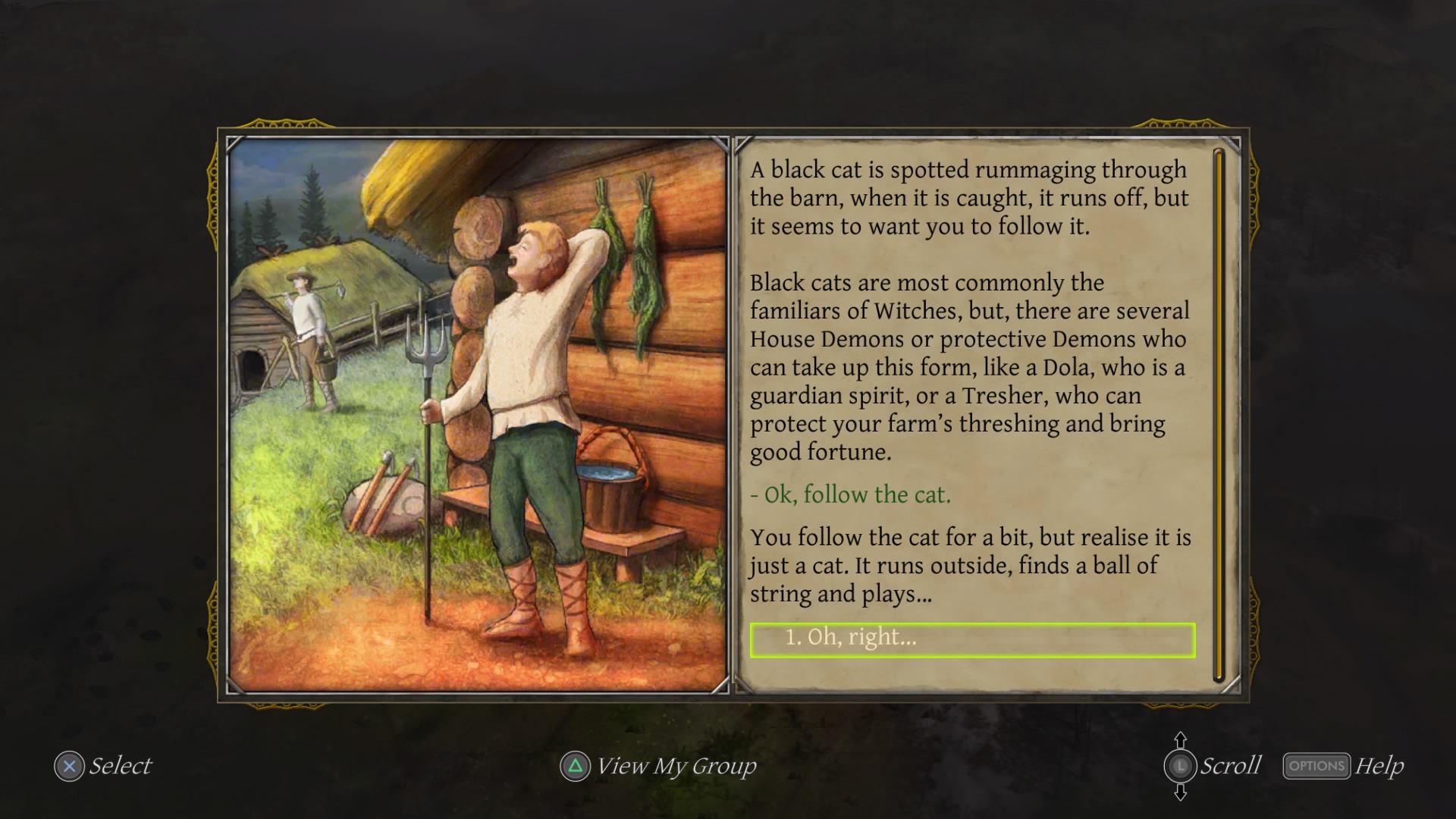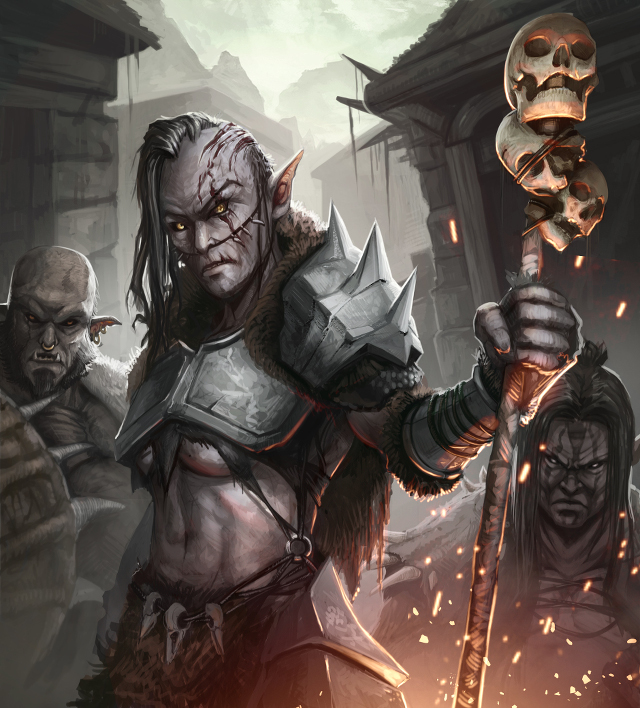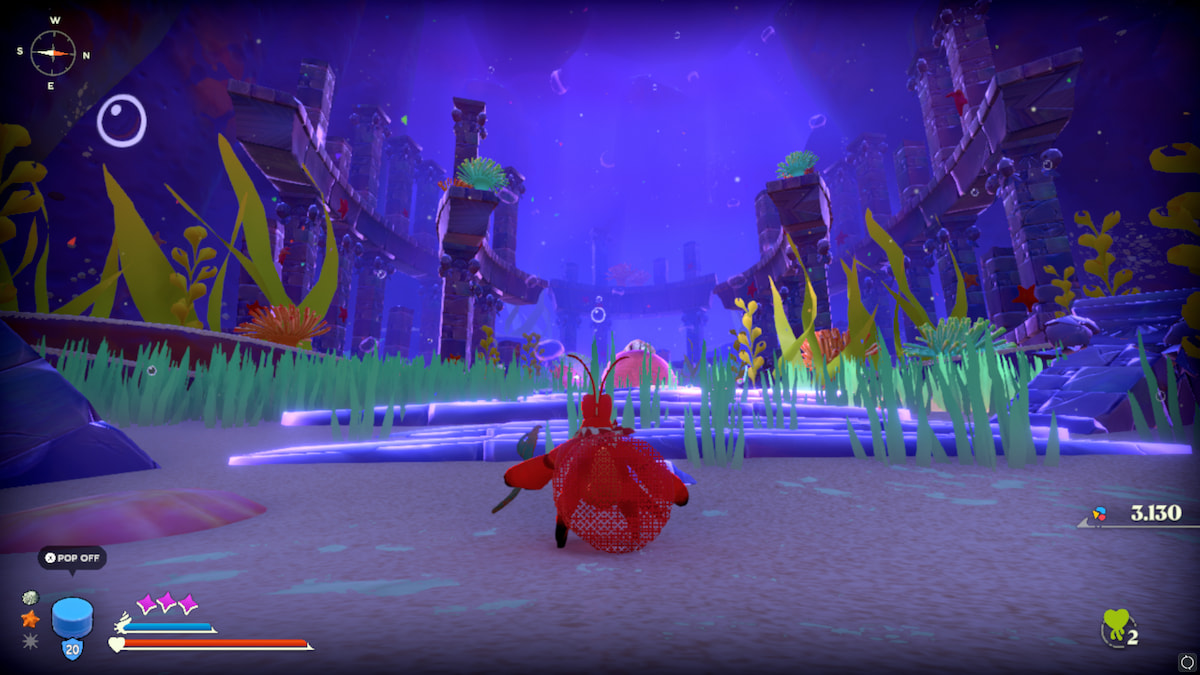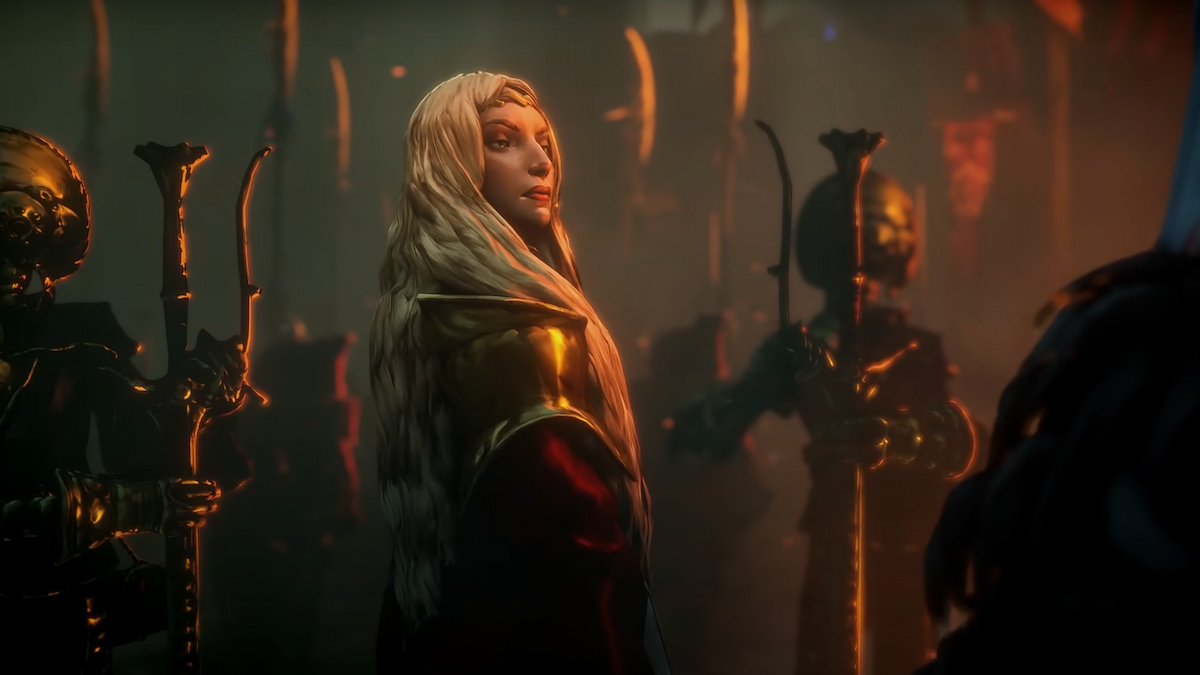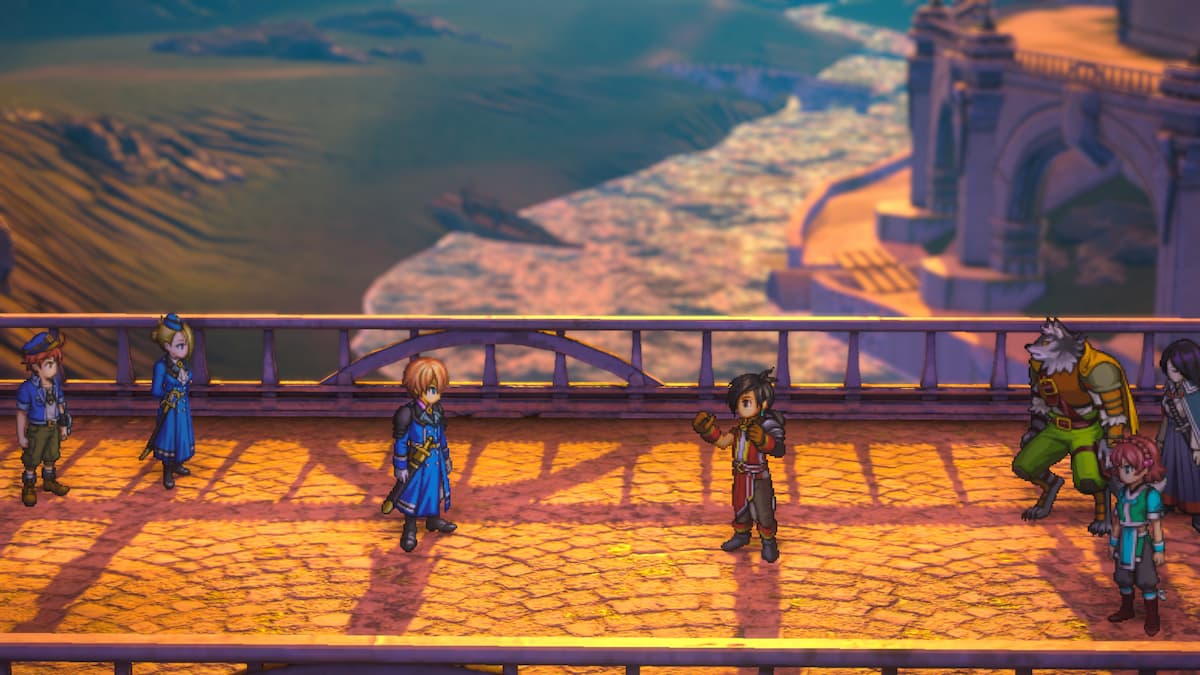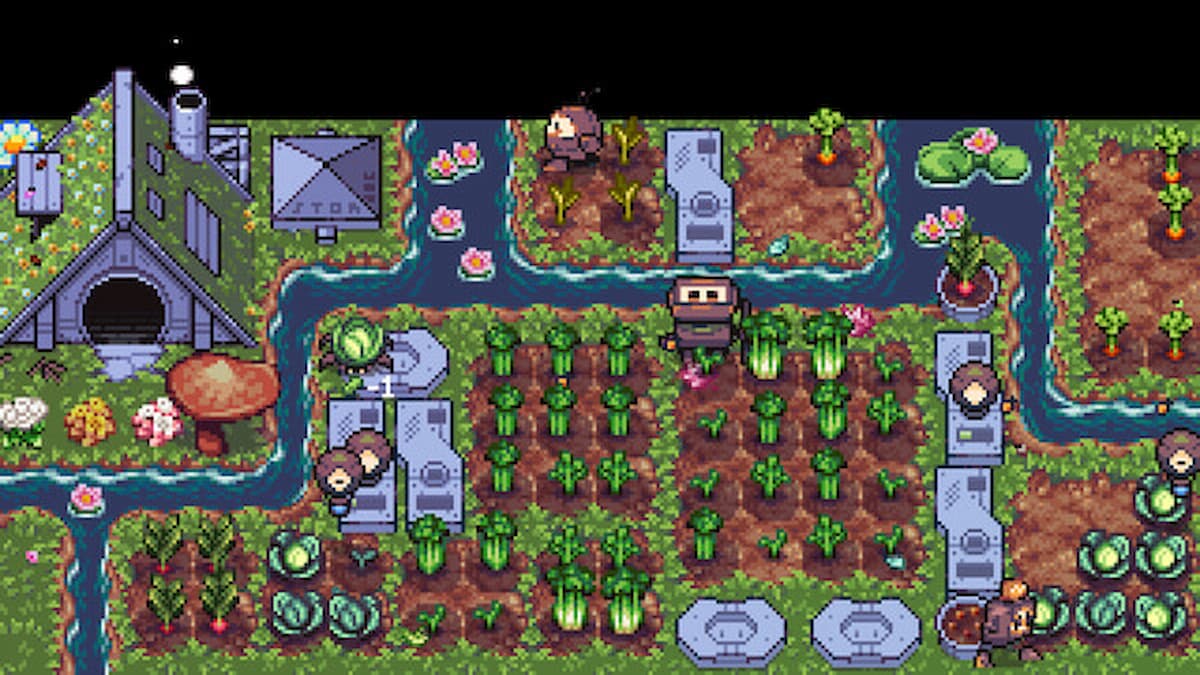Thea: The Awakening — MuHa Games’ first major release — is an odd game because of the many different genres that you can find bits and pieces of throughout. At its heart, the game is a 4X title, but it manages to pinch elements from other genres and games including Minecraft, card-based titles, and visual novels. Rouguelite mechanics are even thrown in for good measure. Despite the number of varied influences, I think the game was able to pull off the genre-melding rather well; in other words, it’s not one of the game’s major problems.
In Thea, you play as a god from Slavic mythology who seeks to regain its power after a century long blackness destroyed much of the world. The game itself takes place on a large, procedurally generated hex based world map with your home village located in the middle. This is where you can construct buildings, craft items, and store all of your loot. Since this is your only base of operations, it shapes your whole experience with the game.
As you move around the map, random events may occur. A large box of text will pop up, accompanied by an appropriate hand drawn painting for the event as well as a narrator who will read out the progressing tale. After a small section of text — ranging in size from a few sentences to several paragraphs — you will be given options based on the skills of your teammates. Although a broader range of dialogue options open up later in the game, they are unfortunately quite limited early on.
Many of these events are enthralling, especially on your first playthrough where they are regularly new and fresh. I particularly loved the fact that text could recount stories that were too technically complicated for the 3D medium. For instance, I once came upon a cursed elf in an abandoned village where all of the items therein would turn to dust upon being touched. You’re just frankly not going to see that in any other game because it’s too expensive to make a throwaway level and I love that.
The events crafted a world that I became interested in learning more about.
Sadly, I felt that the game didn’t take full advantage of this as many of the events could easily incorporate 3D game technology. For every village that turned to ash or ice princess that asked me to take her to a distant tower, I would get approached by a traveling merchant or seduced by a Striga. Moreover, many of them could just be failed, which only achieved a sour taste in my mouth. Sure, I could start a new playthrough for the King Arthur inspired quest reward, but that’d be a tall order to ask for something that, frankly, wouldn’t be worth it.
I also enjoyed the crafting system as it allowed for versatility amongst the items you created as opposed to the rigidness imposed by most systems. However, this wasn’t always perfect as it favored small incremental boosts via slightly better crafting materials over new, and genuinely interesting items and buildings.
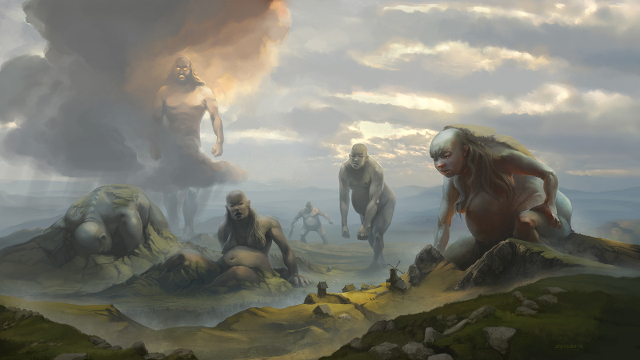
Thea: The Awakening — much like a gambling addict — has a problem with chance.
But let me clarify. Chance can be — and often is — a great thing in video games. Landing a blow that you know should have missed in Fire Emblem always feels great. Seemingly uninteresting encounters can be made all the more interesting when a little bit of unpredictable chance is thrown in there.
Like any dish, though, too much ruins the whole meal. When a game becomes too driven by chance, then player agency takes a back seat. This is part of the reason that popular F2P progression mechanics are so infuriating; they have nothing to do with your skill as a player or the choices you wish to make because it’s merely determined by a roll of the dice.
As you might expect, the random events (random is literally in the name) are one of the many areas that chance rears its ugly head, and unfortunately, a lot of them are downright evil. One such event pits you up against an endgame enemy that will wipe your whole team… unless you sacrifice a child or party member. Keep in mind that I saw this at least a dozen times and success requires around 30 units. In short, this one event alone drained a huge amount of resources. On top of this, other horrible events also have the chance of happening in rapid succession, ones that will easily set you back several hours or make you outright lose — all for no good reason.
The “optimal” solution is to sacrifice children. Soak it in.
The combat system, which is honestly its own huge bag of worms, also relies too heavily on chance. At the beginning of a challenge, all of your units are randomly split into two halves, both of which transfer into one of two hands. The battle hand is your primary form of offense, whereas the tactical hand uses support skills to provide defense.
This immediately means that a lot of your attack units will get placed into the tactical hand and vice versa. While tactical cards can be used as attack cards at the expense of a penalty, attack cards can’t be chosen as tactical cards, which means that those extremely frail combatants are functionally useless in the battle hand.
Once all cards have been separated into hands, the person that goes first during each round is determined randomly. The starting player — you or the NPC — thus garners a distinct advantage since you can play your largest and most powerful card, forcing the opponent to adequately counter. You could play a weak card as fodder, but injuries from combat transfer to the full game, which means dead units.
Lastly, RNG determines who each unit attacks. When all cards have been played you enter the fighting phase. The fighters battle from left to right, but the catch is that each unit has a 50% chance of attacking the nearest enemy to their left or right, regardless of their strength. This often leads to a weak unit getting killed early while the stronger, unscathed unit ends up killing you further into the fight.
To add insult to injury, it is always possible that your group randomly gets attacked by a much stronger enemy group on the world map. This is especially true of the home base which has units being unfairly and infuriatingly wiped out because of the opposition’s sheer brutality. However, this is such a rare occurrence that having units guard it is a wasteful affair anyway. Enemies don’t even move in intelligent or predictable ways on the world map either, thus reducing their movements to random nonsense as opposed to something you can strategically prepare for.
There are 9 types of Challenges, each of which use different stats to determine your combat efficacy.
The main way you actually get units in the game is by planting cabbage patches to “attract children” (I can’t make this up, folks) which will randomly show up at the start of a turn. This, along with the sheer number of various “challenges” that are constantly thrown at you means that you can never adequately prepare for any situation.
I don’t have a problem with a game being hard when it is designed well. The difficulty popularized by the Souls series is largely based upon skill and memory. These are things you can actively learn from and use in future attempts to get better. But the difficulty found in Thea is not something you can learn from. I know that there will eventually be a giant that will either murder my whole team or demand that I sacrifice a unit, but I don’t know when and I have no way of really fighting against it or preparing for it. So… I’m just screwed.
A lot of my above complaints also lead to a couple of other problems as well. It’s honestly astounding how much of the game boils down to “Throw a larger number of units at it until it becomes painfully easy!”. This is all thanks to the game’s unpredictability concerning difficulty. Combined with the fact that each group has its own chance to produce random events means that it is extremely inadvisable to split your units up into multiple expeditions lest they all get systematically murdered/cursed.
Admittedly, cabbage patch babies are kinda adorable.
Moreover, much of the game is extremely brutal early on while rewarding you for being powerful later on. This is known as a positive feedback loop, or in the real world: the rich get richer. It also means that there is an astounding difficulty curve at first, while later in the game you will be able to thrive on your previous, hard-fought successes.
At this point I have gone over most of the bag of worms that I alluded to when I first mentioned combat, except for one small detail: you can skip all combat by merely auto-resolving it. Unlike most games, where a feature like this always ends with your most powerful units running headlong into combat (I’m looking at you, Fire Emblem Heroes), this game’s auto-resolve not only saves you a ton of time, but actually performs well, even to the point that it regularly surpasses my own skill. And let’s be frank, no one ever likes to be outdone by a robot.
The Devil Is In The Details
The game also suffers from some other smaller problems that really aren’t acceptable considering the dizzying amount of larger problems on display.
I was genuinely scared of that black cat murdering my whole village.
The UI isn’t horrible, but there are a lot of functionalities which are bad and not merely because the game is ported from PC. For instance, you can only dismantle items one at a time despite getting huge batches of useless loot.
Large teams also become frustratingly tedious to equip just because of the sheer number of units. This felt like a larger design problem to me. Either don’t have so many units, have less equipment for each unit, or find a creative way to manage equipment. Moreover, large teams were a pain to actually battle with; what card game ever lets you have 30 cards in your hand at once?
With there being so many units at once, there are a plethora of classes from which to chose. Out of the 15 or so classes, I found that only 3 or 4 of them had distinct benefits in comparison to the others. They only really determine stat growth and not any actual abilities or skills, which was a really disappointing discovery after gathering magic users and mythological teammates. Wind spirits, orcs, elves, witches, goblins, etc, — none of them really stand apart. If classes had been done well, then a lot of the other gripes could have been overlooked.
Orc Matriarchs are badass.
Thea plays way too slowly to be viewed as an engaging roguelike as well. Your life contributes to leveling up patron gods, but even though I successfully beat the main campaign, my patron god’s own small campaign, and the expansion campaign over the course of ~30 hours, I still only got my god to level 2 out of 5. Dying also ends up diminishing your patron god’s leveling since you have presumably not done as much. In short, the whole process is extremely slow, which made me unwilling to seek out the potential rewards. This in turn diminished any interest in replaying the game that I might have had.
The game’s general desire to just hold you in utter contempt as it orders the sacrifice of units means that save manipulation will be a sure-fire method to retain your sanity upon reaching the point of giving up.
In short, the game feels relentlessly challenging, much like real life.
Too much of the game is out of your control and the few things that are in your control can either be skipped, like combat, or just aren’t that fun, like navigating superfluous menus. The best part about the game — the fun stories experienced through the random events — became dull all too fast since they repeat with such frequency. The game even had the audacity to tell me that I’d only experienced about 25% of the events, so where were the rest?
As hard as I have grilled this game, I can’t deny that I had some fun with it. Even as I watched the launch trailer a short while ago, I felt this surge of joy. But looking back, most of that fun was due to my own naivety, much like a youthful relationship. Oh, how I expected the game to become something in the early hours that it never would become in the later hours.
The main reasons I would suggest for playing this game would be to see the unique mashup of genres, which is admittedly refreshing, and to experience a sort of trance-like state where you passively play as you tick your time away.
—
Disclaimer: The review code was provided by the developer.

